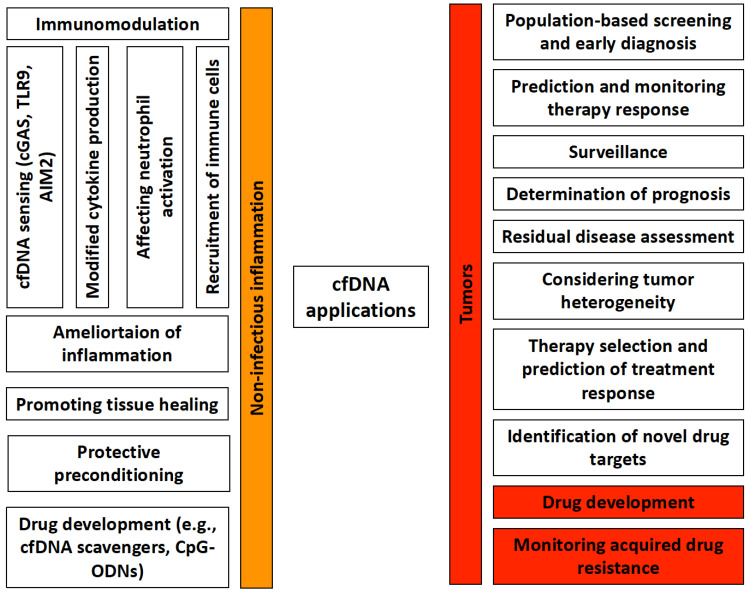Figure 1.
Potential clinical and experimental applications of cfDNA in non-infectious inflammations and tumors. cfDNA has an immunomodulatory effect in non-infectious inflammations, which is mediated by cfDNA sensing, changes in cytokine production, neutrophil activation, and effects on other immune cells. cfDNA by itself can reduce inflammation, promote tissue healing, and is also suitable for protective pretreatments. In addition, it can serve as a promising starting point for drug development. In tumors, it can play a significant role in population-level screenings, early diagnosis, and therapeutic response determination. In addition to being able to predict the course of the disease, it can also be used to determine any residual disease after treatment. It provides information on the heterogeneity of tumor cells, thereby facilitating the selection of the most effective treatment. It can serve as a basis for drug development. Furthermore, it allows for the monitoring of acquired drug resistance.

